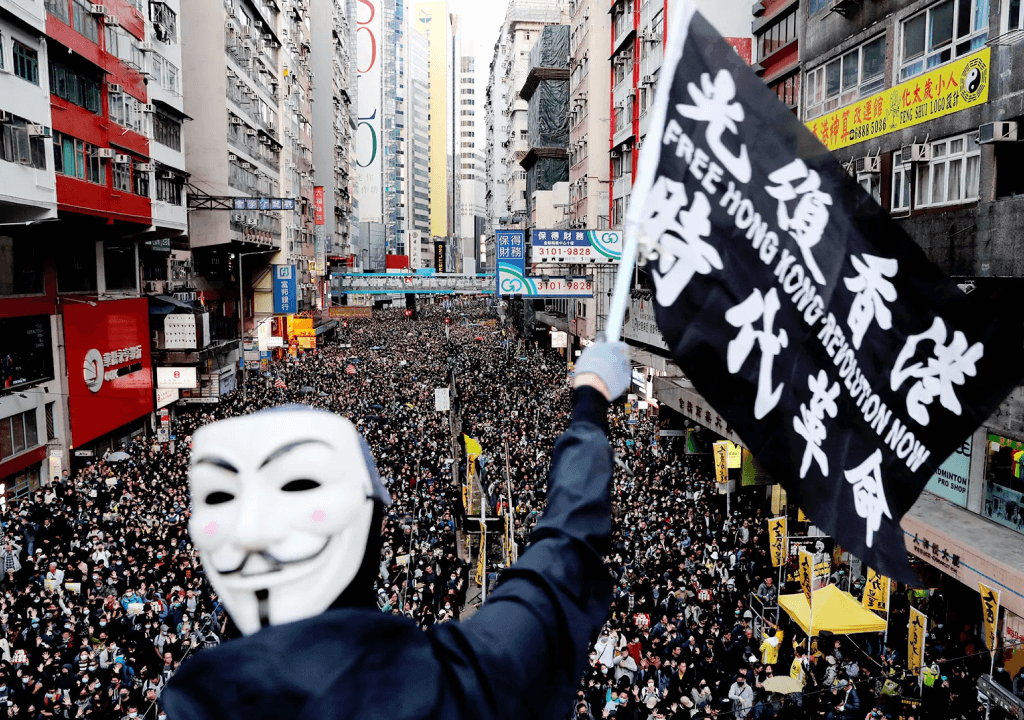Hong Kong is in its final days of political freedom and its distinct identity. Communist China, now firmly in control, is transforming Hong Kong into yet another territory under its full authority, erasing the remnants of British and Western influence. Political freedom and free speech, once defining features of Hong Kong, have become the first casualties in this new, Chinese-controlled era.
China has been methodically executing its plan: rewriting the constitution, orchestrating elections to ensure its dominance, and silencing all opposition. Advocates for Hong Kong’s identity, freedom, and democracy are being relentlessly targeted.
Major opposition figures have been arrested and jailed, while large-scale protests have vanished. The administrative machinery is now entirely under China’s control, aligning Hong Kong with the Chinese model of governance. A city that once shone as Asia’s star, an international hub, and the “New York of the East,” has been reduced to a shadow of its former self.
In the latest development in the crackdown on Freedom advocates, a Hong Kong court on Tuesday sentenced 45 pro-democracy activists to prison terms under the city’s controversial national security law. Imposed by Beijing in mid-2020, the law criminalizes acts of dissent, sedition, and foreign collusion. The activists, part of a group known as the “Hong Kong 47”, were charged for their involvement in a 2020 primary election held ahead of the general election. Authorities deemed the event an attempt to subvert the government. It has been repeatedly demonstrated that Beijing harbors a strong aversion to democracy.
In the largest national security trial in Hong Kong’s history, Benny Tai, a legal academic and activist, received a 10-year prison term. The court ruled that Tai’s role in organizing the primaries constituted an attempt to trigger a constitutional crisis. Joshua Wong, a prominent figure in the 2019 protest movement, was sentenced to four years and eight months, reduced by a third due to his guilty plea.. Wong is already serving jail time for other protest-related offenses, with the judges noting that the additional sentence would not be overly punitive.
Australian-Hong Kong dual national Gordon Ng received a sentence exceeding seven years. The court found that Ng actively supported the pro-democracy plan by pressuring others and placing media advertisements. Although Ng pleaded not guilty, the judges acknowledged a potential misunderstanding of the plan’s legality, reducing his sentence by three months.
Among the defendants are activists, legislators, campaigners, and councilors from what was once a thriving pro-democracy movement in Hong Kong. In 2020, the group organized a pre-election primary to identify the strongest candidates to challenge the pro-Beijing establishment in the general election. Their goal was to win a majority in Hong Kong’s Legislative Council (LegCo) and leverage it to block budgetary bills, ultimately pressuring the chief executive to address their pro-democracy demands.
Most defendants have already spent over three years in jail, yet none were released following the sentencing. Those who pleaded not guilty received harsher penalties, reflecting the court’s stance on their lack of cooperation.
The NSL trials extend beyond this case. On Wednesday, jailed media tycoon and pro-democracy activist Jimmy Lai is set to testify in his collusion trial, breaking his silence after nearly four years in prison and five prior trials. Lai, founder of the now-defunct Apple Daily, faces charges tied to the newspaper’s articles supporting pro-democracy protests and criticizing Beijing’s leadership.
Observers believe that the demand for Hong Kong’s freedom will fade over time. However, the intense public interest in the trial tells a different story. At the West Kowloon Magistrates Court, the queue for public entry began over the weekend and grew to several hundred people by Tuesday. Some individuals who had waited in line for over a day were accused by bystanders of being paid to secure seat tickets without entering the courtroom—a practice increasingly scrutinized in high-profile political cases. On Tuesday morning, police vans patrolled the area as officers directed the crowd into a line that stretched down the block and doubled back on itself. Several people were searched by officers.
But even as the protest movement must be suppressed successfully by the Chinese government, Hong Kong’s identity is at stake. Without freedom, democracy, cooperation with the West, and free trade, Hong Kong will cease to exist as the global city it once was. Instead, it risks becoming just another Chinese city, indistinguishable from Beijing, Shanghai, or Guangzhou.








